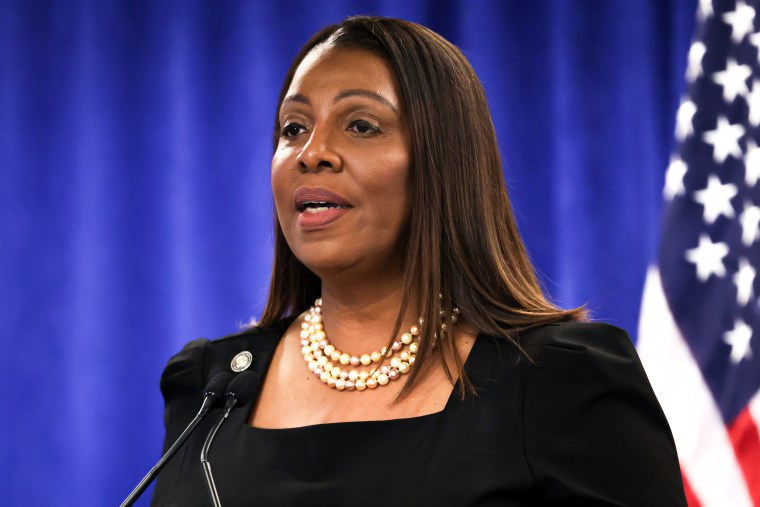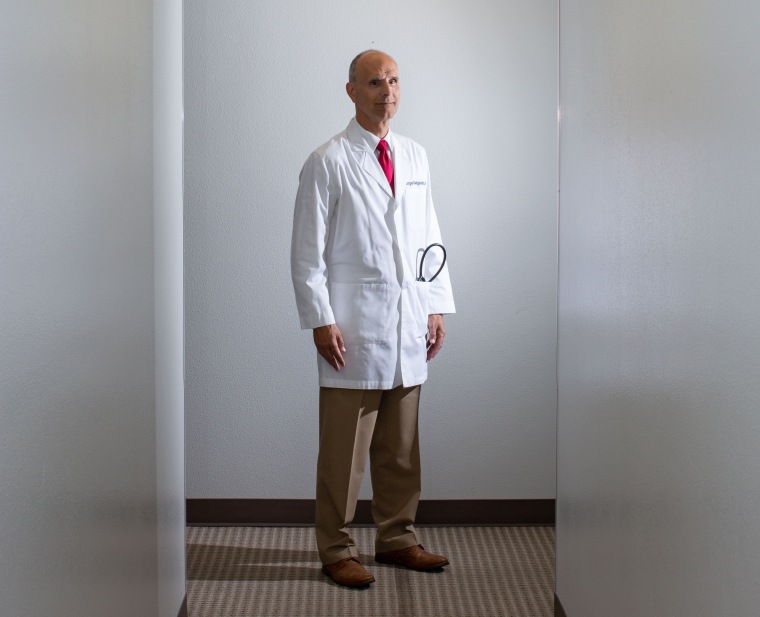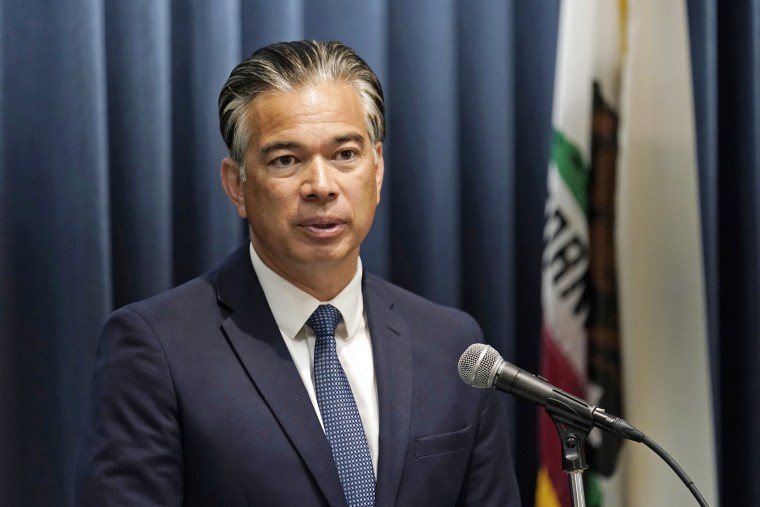“IT MAY NOT BE TOO LATE TO SAVE YOUR PREGNANCY.” That message blares from a website awash in pink.
The site, run by the anti-abortion group Heartbeat International, describes what it calls “abortion pill reversal,” based on the disputed idea that it’s possible to undo the first step of a medication abortion by taking the hormone progesterone within 24-72 hours.
Started as an experimental treatment more than a decade ago, abortion reversal is now widely promoted in anti-abortion circles — and deeply contentious outside of them. Major medical organizations and researchers say it’s inadequately studied and potentially dangerous.
The American College of Obstetricians and Gynecologists is one of them, calling the process “unproven and unethical.”
The debate has simmered for years, but now, two years after the fall of Roe v. Wade and with the use of medication abortion at an all-time high, legislative efforts and courtroom battles over the treatment have sprung up in at least nine states.
Attorneys general in New York and California have sued to block proponents of abortion reversal from peddling claims they say are false advertising.
“Abortions cannot be reversed. Any treatments that claim to do so are made without scientific evidence and could be unsafe,” New York Attorney General Letitia James said in a statement.

But several states have moved in the opposite direction, considering legislation that would require abortion clinics to tell patients, among other guidance, that abortions can be reversed. In Kansas, a law passed last year but now on hold requires such counseling, similar to earlier laws passed in 14 other states.
In Colorado, the first state to ban providers from offering the procedure, anti-abortion advocates have thus far blocked the law from taking effect.
This fall, the American Association of Pro-Life Obstetricians and Gynecologists plans to roll out a course on abortion reversal to hospitals and doctors. The Heritage Foundation, the conservative organization behind Project 2025, which advocates for restricting medication abortion, awarded the association a $100,000 grant toward the effort.
Mary Ziegler, a historian and law professor who has studied the anti-abortion movement, sees the increasingly fraught debate over abortion reversal as part of conservatives’ broader war against medication abortion. This year, anti-abortion groups unsuccessfully attempted to limit access to mifepristone in a case before the Supreme Court, leaving the drug widely available.
“As long as abortion is legal in some parts of the country, there is at least a perceived need in the anti-abortion movement for a way of discouraging people from using abortion pills — or thinking that they can change their minds,” Ziegler said.
Approved in 2000 for use in the U.S., medication abortions require a two-step process: First, a patient takes mifepristone. Then, within 48 hours, they take misoprostol, which causes contractions that empty the uterus, a regimen that the FDA and a large body of studies have found to be safe.
Roughly 15 years ago, Dr. George Delgado, medical director of Culture of Life Family Services, began to explore the idea of abortion reversal. He reasoned that since mifepristone blocks progesterone receptors, providing a high dose of progesterone might counteract its effects. Progesterone was already being used to treat patients at risk of miscarriage and to bolster IVF.
“I thought people would welcome a second chance at choice,” he said.
Cynthia, who asked to use only her first name to protect sensitive medical information, was the first patient to whom Delgado administered the treatment.
She was a 19-year-old freshman in college when she said she learned she was pregnant. She took the first dose of mifepristone but said she started having “second thoughts” and was referred by her family’s priest to Delgado.
When she saw an ultrasound of her fetus at Delgado’s office, Cynthia said, she cried.
“At that point, I was willing to do anything,” she said. She traveled to his clinic several times a week to receive progesterone, and later gave birth to her son, who is now 13 years old.
But researchers say that very few people who have abortions come to regret them. The Turnaway Study, led by researchers from the University of California, San Francisco, followed more than 1,000 participants who had abortions or were unable to have one. Researchers found that 95% of respondents contacted five years after ending their pregnancies said it was the right decision for them.
“People seeking abortion care do so after making thoughtful decisions that align with their values, priorities, and their family’s unique needs,” the American College of Obstetricians and Gynecologists said in a statement to NBC News. “Questioning those thoughtful decisions and promoting myths about regret associated with abortion only perpetuate abortion stigma.”

Initially, advice on abortion pill reversal spread by word of mouth, Delgado said. Then he launched a hotline to share the information and connect callers to the nearest doctor offering the treatment. Heartbeat International took over that operation in 2018 and says it now receives 170 calls per month.
It says its network consists of an estimated 1,400 doctors, hospitals and what it calls “pregnancy help organizations.” At least 1,875 women received a prescription through the network last year, a 43% increase since 2020, according to its most recent report.
Heartbeat International hopes to reach even more people by backing laws that require abortion providers to tell patients about the regimen, which has not been approved by federal regulators. Lawmakers in seven states introduced such legislation this year, though none of the bills have passed.
“When somebody comes to us saying, ‘I made a mistake. I took the abortion pill’ — whatever kind of pressure or fear or frustration that was going on, they regret it, and so we have an obligation to try to help them at their request,” said Dr. William Lile, an OB-GYN based in Florida who is on the network’s medical advisory board.
But many doctors and researchers disagree. A significant portion of patients who discontinue a medication abortion by not taking misoprostol, the second step after mifepristone, remain pregnant, even without the addition of progesterone, critics of abortion reversal say. The question is whether the progesterone increases that likelihood and by how much. A study that looks at the outcome of taking mifepristone alone versus taking mifepristone plus progesterone, critics argue, is needed to isolate progesterone’s role.
A study like that was started by researchers at the University of California, Davis, in 2019, but it had to be halted early after three of the study’s 12 participants — their goal was to enroll 40 — experienced dangerous bleeding and required hospital visits.
For Dr. Mitchell Creinin, who led the study, those results were disturbing. They were “a safety signal,” he said in an interview, “meaning it’s not safe to evaluate this or use this as a treatment until we figure this out.”
Delgado sees it differently, noting as other proponents have, that two of the three patients who experienced excessive bleeding had only taken mifepristone, rather than mifepristone followed by progesterone, and those were the ones who required more care. Delgado was one of the plaintiffs in the Supreme Court case challenging access to mifepristone.
To back up his support of abortion reversal, Delgado cites his own research, including a “case series” involving hundreds of patients, as proof that abortion reversal works. Published in 2018, he reported that roughly half of the patients treated with progesterone went on to give birth.
But critics say that study failed to meet key research standards, such as having a control group and including safety data. In response, Delgado noted that he did track birth defects, which he described as a major aspect of safety. Although Delgado has said he plans to conduct more research, he’s resisted carrying out a placebo-controlled study because he doesn’t believe there’s an ethical way to do one if a patient actually wants to continue their pregnancy.
“Have there been any double-blind, randomized, placebo-controlled trials on CPR? No,” he said. “Why do we do CPR? Because it’s the best that we have.”
Creinin said that the protocol hasn’t been studied enough to properly inform patients about possible side effects or complications. The fact that progesterone has been approved for other uses, he said, doesn’t mean that it’s safe or effective for use in this application.
“Is there a possibility this works? I will say until I’m blue in the face, ‘Yes, there is a possibility it works,’” Creinin said. “Is there any evidence that it works? None.”
The future of “abortion pill reversal” will likely depend on legal skirmishes being fought in courthouses and statehouses.
In their suits against Heartbeat International and anti-abortion crisis pregnancy centers that promote abortion pill reversal, Democratic attorneys general in New York and California have argued that the practice is medically unsound and potential clients are receiving misleading information. Heartbeat International said in response that it stands by its claims and statistics.
In a countersuit, Heartbeat International contested James’ allegations, casting the lawsuit as political persecution.
“It’s up to the women to decide, not the court or not the attorneys general who are just trying to silence us,” said Andrea Trudden, a spokesperson for Heartbeat International.
The law firm Thomas More Society is also representing Heartbeat International in California, where Attorney General Rob Bonta sued the organization and another on similar grounds. In June, a judge declined to dismiss the state’s case, which will proceed in the coming months.

Abortion reversal is also being fought over in Colorado, which last year became the first state to outlaw its use. A Catholic clinic sued, and the ban was put on pause.
Soon after, the Alliance Defending Freedom, a conservative Christian law firm that was a key player in overturning Roe v. Wade, joined the case on behalf of Chelsea Mynyk, a nurse midwife who said she was subject to an investigation by the Colorado State Board of Nursing for offering the treatment at her home-based clinic. In an interview, she said she was “disheartened” by the complaint against her, explaining it seemed designed to “make it difficult for providers like myself to help save lives.”
In Kansas, Planned Parenthood sued to block a law requiring abortion providers to tell patients about abortion pill reversal. Kansas’ mandate is part of a sweep of anti-abortion measures introduced in the state Legislature after residents voted to protect abortion rights in 2022.
Elisabeth Smith, director of state policy and advocacy at the Center for Reproductive Rights, which is representing Planned Parenthood and other providers in Kansas, says because the voters protected abortion, conservative lawmakers have turned toward alternative tactics.
They’re “perpetuating stigma,” Smith said, by “making people think that maybe this treatment isn’t effective, maybe their provider isn’t trustworthy, and that maybe abortion is something that should be regretted.” Lawmakers “just push, push, push stigma,” she added, “because they know they can’t pass a total ban and see it be enforced.”
In New York, both sides are waiting for a ruling from an appeals court to determine where the case will be heard. The Thomas More Society said it’s preparing to file a challenge in federal court.







